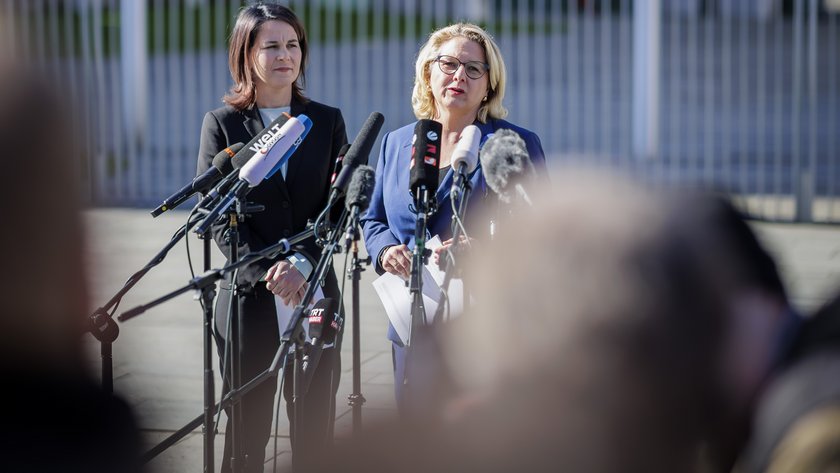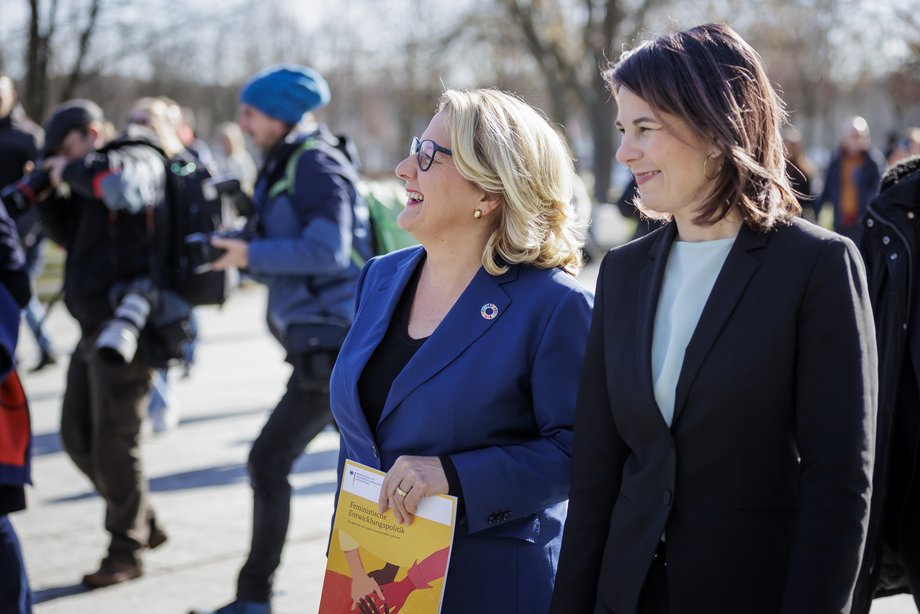Feminist Development Policy
for just and strong societies worldwide.
Feminist development policy is guided by the vision of a world in which all people can participate equally in social, political and economic life, regardless of gender, sexual orientation, disabilities, age, religion or ethnicity. The aim of feminist development policy is to address and transform structural causes of inequalities by dismantling discriminatory power structures and thus creating the conditions for equal, peaceful and resilient societies.

Global crises and the power imbalance between the Global North and the Global South endanger the realization of human rights worldwide and reinforce or entrench existing inequalities. Feminist development policy is therefore also human rights policy and a question of justice. It is not a policy by women for women or a "business as usual" within existing, discriminatory structures, but a challenge of our time to rethink and, first and foremost, a task for society as a whole.
This is where the BMZ's strategy for feminist development policy comes in. It goes beyond the issue of gender inequality and focuses on inequalities in their multiple and intersecting forms in order to sustainably overcome structural causes of inequality such as power hierarchies, discriminatory laws and social norms. From March 2023 on, it will be the BMZ's mission statement on a cross-sectoral basis for all regions and instruments of German development policy and is divided into four fields of action:
The fields of action of feminist development policy
1.Strengthening the "3 R's"
in German development cooperation: realizing the rights of women in all their diversity as well as marginalized groups, ensuring their access to and control over resources, and promoting their representation.
2.Anchoring
the feminist approach in projects and targeted promotion of gender equality through the establishment of gender-transformative and intersectional approaches and the participation of local actors and target groups throughout the project cycle.
3.Broad alliances
to strengthen feminist policies and agendas and to develop a common understanding of feminist development policy, especially by working with civil society and respecting the perspectives of partners in the Global South.
4.Reflection
Setting a good example by further developing one's own structures and ways of working through continuous learning and adaptation processes in the sense of a feminist development policy.
At its core, feminist development policy is based on human rights and the associated principles of non-discrimination and equal opportunities, participation and empowerment, as well as transparency and accountability. In addition, it has a gender-transformative effect, thus explicitly aiming to overcome discriminatory (power) structures, social norms and behaviors and, due to its intersectional orientation, takes into account different dimensions of discrimination that inextricably overlap. After all, feminist development policy has a post-colonial, anti-racist claim and relies on broad alliances in the international community as well as with civil society.
Federal Development Minister Svenja Schulze summed up this reorientation of German development policy at the press conference on the publication of the strategy; The aim is nothing more and nothing less than equal participation of all people in social, political and economic life – regardless of gender, gender identity, sexual orientation, skin colour, disability or other characteristics.
Dawn of a Feminist Development Policy

The publication of the strategy in March 2023 was just the beginning. By the end of this year, the BMZ will use the publication of its third Gender Action Plan to formulate concrete goals for the implementation of feminist development policy and to anchor its impact measurement in a monitoring and evaluation system.
In addition, German development policy will significantly increase funding for gender equality by 2025. 93% of the newly pledged project funds are intended to contribute to gender equality or to promote it in a targeted manner.